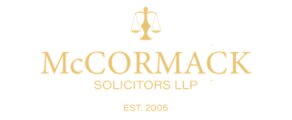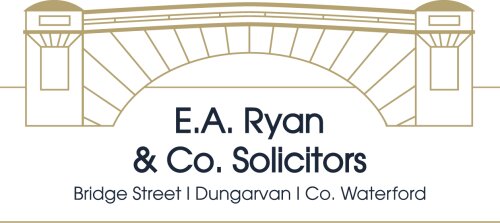Best Adoption Lawyers in Ireland
Share your needs with us, get contacted by law firms.
Free. Takes 2 min.
Free Guide to Hiring a Family Lawyer
Or refine your search by selecting a city:
List of the best lawyers in Ireland
About Adoption Law in Ireland
Adoption in Ireland is a legal process that allows a child to become a permanent member of a new family. This process is governed by the Adoption Act 2010, which sets out the rules and procedures for domestic and international adoptions. The adoption process ensures that all adoptions are carried out in the best interests of the child, with consideration for their natural rights and the responsibilities of the adoptive parents. The Adoption Authority of Ireland, an independent statutory body, oversees and regulates the adoption process in the country.
Why You May Need a Lawyer
Several situations may necessitate legal assistance in adoption cases in Ireland:
- Navigating the Legal Process: Adoption involves complex legal procedures and documentation. A lawyer can guide prospective adoptive parents through these processes to ensure compliance with all legal requirements.
- International Adoption: Laws and regulations can vary significantly between countries. A lawyer can help navigate international regulatory requirements and any legal challenges that may arise.
- Contested Adoption: In cases where there are disputes or disagreements, such as contestations from biological parents, legal representation is crucial to manage conflicts and present a case in court effectively.
- Updating Adoption Arrangements: Sometimes, adoptive parents may need to revise arrangements or need clarification about legal obligations and rights post-adoption.
- Protecting Children's Rights: Legal advice ensures that the child’s best interests and rights are always prioritized in the adoption process.
Local Laws Overview
Key aspects of local laws governing adoption in Ireland include:
- The Adoption Act 2010: This is the principal piece of legislation, setting out the framework for all adoption proceedings in the country.
- Requirements for Adoptive Parents: Prospective adoptive parents must meet specific criteria, including being at least 21 years old (25 if adopting alone) and must be habitually resident in Ireland.
- The Role of the Adoption Authority: This body is responsible for granting adoption orders and ensuring all processes adhere to legal standards.
- Intercountry Adoption Procedures: These are supported by the Hague Convention to protect children's welfare during international adoptions.
- Consents Needed: The biological parents' consent is a critical component in the adoption process, except where the court decides otherwise in the child's best interests.
Frequently Asked Questions
1. What is the legal age for adopting a child in Ireland?
Prospective adoptive parents must be at least 21 years old. If adopting as a couple, at least one partner must be over 25 years of age.
2. Can single individuals adopt in Ireland?
Yes, single individuals can adopt in Ireland, provided they meet all the necessary eligibility criteria and the adoption is deemed to be in the best interests of the child.
3. What is an 'open adoption'?
An open adoption involves some form of contact or communication between the biological and adoptive families, which the Adoption Authority may facilitate.
4. How long does the adoption process take?
The duration can vary significantly based on specific circumstances, including the type of adoption being pursued (domestic vs. intercountry) and the complexity of the case.
5. Are there any fees associated with adoption?
While there are no set statutory fees, costs can include legal fees, agency fees, and expenses related to the home study and evaluation processes.
6. What support is available for adoptive families?
Various support services are available, including post-adoption support, counseling, and access to adoption-specific support groups.
7. Can adoption orders be reversed?
Adoption orders are generally permanent. However, in exceptional circumstances, they can be challenged in court, with the child's best interests as the primary consideration.
8. What are the requirements for intercountry adoption?
Adopting from abroad requires compliance with both Irish law and the laws of the child's native country, along with adherence to international agreements like the Hague Convention.
9. Do adoptees have access to information about their birth family?
Adoptees have the right to access their birth information at age 18, subject to restrictions if it affects the privacy rights of others involved.
10. Can step-parents adopt their stepchildren?
Yes, step-parent adoption is possible in Ireland, but the process involves specific legal procedures to ensure all parental rights are adequately addressed.
Additional Resources
- Adoption Authority of Ireland: The main body overseeing adoptions; provides guidance on relevant laws and processes.
- Tusla - Child and Family Agency: Offers services and supports related to adoption, fostering, and child protection.
- Irish Adoption Support Network: A support group offering resources, information, and advice for adoptive families.
- Citizens Information: Provides free, reliable, and impartial information on government services, including adoption.
Next Steps
If you are considering adoption and need legal assistance, it is recommended to engage with a solicitor specializing in family law. Here are some steps to guide you:
- Research and Contact Lawyers: Look for family law solicitors with experience in adoption cases and arrange consultations to discuss your situation.
- Prepare Documentation: Gather all necessary documents including identification, proof of residence, and any preliminary information related to the adoption.
- Attend Consultations: Use initial meetings to understand legal procedures, potential challenges, and cost implications.
- Understand Your Rights and Obligations: Discuss with your solicitor the rights and responsibilities you will have as an adoptive parent.
The decision to adopt is significant, involving legal and emotional elements. Taking informed steps with professional advice can ensure a smooth and legally sound adoption process.
Lawzana helps you find the best lawyers and law firms in Ireland through a curated and pre-screened list of qualified legal professionals. Our platform offers rankings and detailed profiles of attorneys and law firms, allowing you to compare based on practice areas, including Adoption, experience, and client feedback.
Each profile includes a description of the firm's areas of practice, client reviews, team members and partners, year of establishment, spoken languages, office locations, contact information, social media presence, and any published articles or resources. Most firms on our platform speak English and are experienced in both local and international legal matters.
Get a quote from top-rated law firms in Ireland — quickly, securely, and without unnecessary hassle.
Disclaimer:
The information provided on this page is for general informational purposes only and does not constitute legal advice. While we strive to ensure the accuracy and relevance of the content, legal information may change over time, and interpretations of the law can vary. You should always consult with a qualified legal professional for advice specific to your situation.
We disclaim all liability for actions taken or not taken based on the content of this page. If you believe any information is incorrect or outdated, please contact us, and we will review and update it where appropriate.
Browse adoption law firms by city in Ireland
Refine your search by selecting a city.













